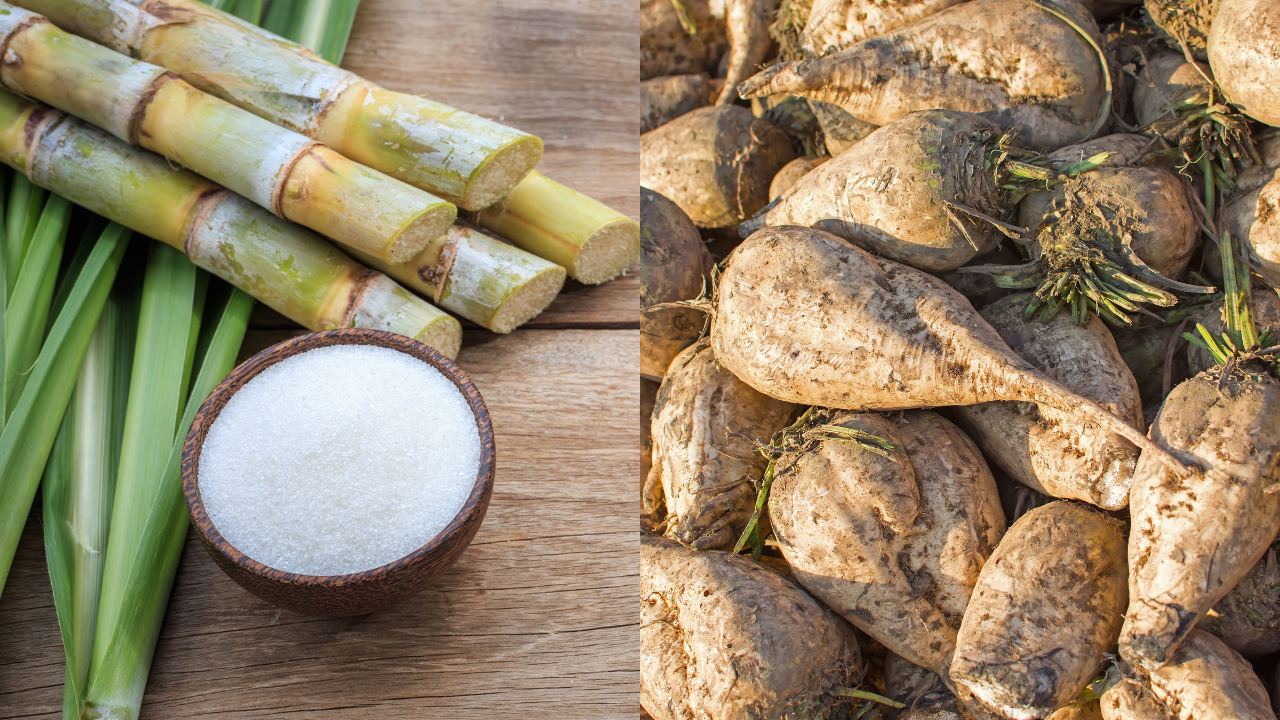The difference between beet sugar vs cane sugar extends beyond taste to how they are cultivated.
The difference between beet sugar vs cane sugar extends beyond taste to how they are cultivated.
Blog Article
Checking Out the Differences in Uses and Advantages In Between Beet Sugar Vs Cane Sugar
In the cooking globe, the selection between beet sugar and cane sugar is not simply regarding sweetness however involves a nuanced factor to consider of flavor, application, and effect. While both sugars stem from various plants, each undertakes one-of-a-kind production procedures that subtly influence their attributes and suitability for various dishes.
Origins and Production Processes of Beet and Cane Sugar

Walking stick sugar, on the other hand, originates from the sugarcane plant, an exotic lawn indigenous to Southeast Asia today grown in tropical zones worldwide. The production of cane sugar begins with the harvesting of cane stalks, which are squashed to launch the juice. This juice is then steamed to focus it, after which it is spun in centrifuges to generate raw sugar crystals. These crystals are further fine-tuned to produce the white sugar generally readily available in stores.

Nutritional Content and Wellness Considerations

When comparing the nutritional content of beet sugar and cane sugar, it ends up being apparent that both types essentially offer the exact same caloric values, with about 16 calories per teaspoon and no substantial nutrient diversity. Each is made up practically completely of sucrose, which is a basic carb that uses fast power yet does not have vitamins, minerals, or fiber. This resemblance reaches their influence on health, especially concerning blood glucose levels. Both sugars, when eaten over, can add to raised blood sugar levels, a risk variable for diabetes and other metabolic disorders. Additionally, excessive intake can result in weight gain and dental troubles, as both sugars are equally cariogenic, promoting dental cavity. From a health point of view, regulating intake of any type of kind of sugar, whether from beet or cane, is suggested to avoid these potential adverse effects on health. Therefore, neither holds a distinctive benefit over the other in regards to wellness advantages.
Flavor Profiles and Culinary Applications
Regardless of their comparable chemical frameworks, beet sugar and cane sugar differ discreetly in flavor, which can influence their use in different culinary contexts. Walking stick sugar often carries a tip of molasses, even in its refined kind, providing a warm, caramel-like touch that improves baked goods, coffee, and chocolate-based dishes. On the various other hand, beet sugar is identified by its very fine-tuned, neutral preference, making it a versatile sweetener that does not modify the taste accounts of dishes.
Environmental Impact and Sustainability
While both beet and cane sugars are derived from plants, their environmental effects differ substantially as a result of the unique approaches of growing and handling needed for each. Sugar beet cultivation usually involves extensive mechanization, which can enhance fossil fuel consumption and carbon emissions. However, beets can be expanded in cooler environments and require less irrigation, possibly lowering water usage contrasted to sugarcane. Sugarcane, on the various other hand, is normally expanded in exotic regions where it counts greatly on irrigation and a longer growing duration, raising its water footprint.
Additionally, the processing of sugarcane frequently produces a significant amount of waste, including bagasse, which, although functional as biofuel, frequently contributes to air contamination if melted inefficiently. Sugar beet processing makes use of more of the raw materials, leading to less waste. Both markets encounter challenges in lowering their ecological footprints, but continuous innovations in agricultural practices and waste administration are aiming to improve sustainability.
Economic Variables Affecting the Sugar Market
The economic dynamics Discover More Here of the sugar market are dramatically affected by international market needs and trade policies. In regions where sugarcane or sugar beet production is subsidized, producers may have a monetary benefit that allows them to use reduced prices on the global market.
In addition, variations in global need for sugar, influenced by nutritional trends and industrial usage in foodstuff, straight influence rates and manufacturing levels. beet sugar vs cane sugar. Weather condition problems additionally play a crucial function, as they can significantly influence crop yields and, as a result, the supply chain. This irregularity presents a degree of financial unpredictability that can lead to investment volatility in sugar manufacturing fields, affecting decisions from growing to market method
Verdict
To conclude, both beet and cane sugar have distinct top qualities go to this web-site that suit different cooking demands. While cane sugar conveys an abundant taste suitable for enhancing baked products, beet sugar's neutrality is excellent for lighter recipes. Nutritional resemblances regardless of, their unique manufacturing procedures and ecological influences add intricacy to the option between them. Thus, understanding these see page differences aids cooks and customers make educated decisions that align with their health, cooking, and moral choices.
Report this page